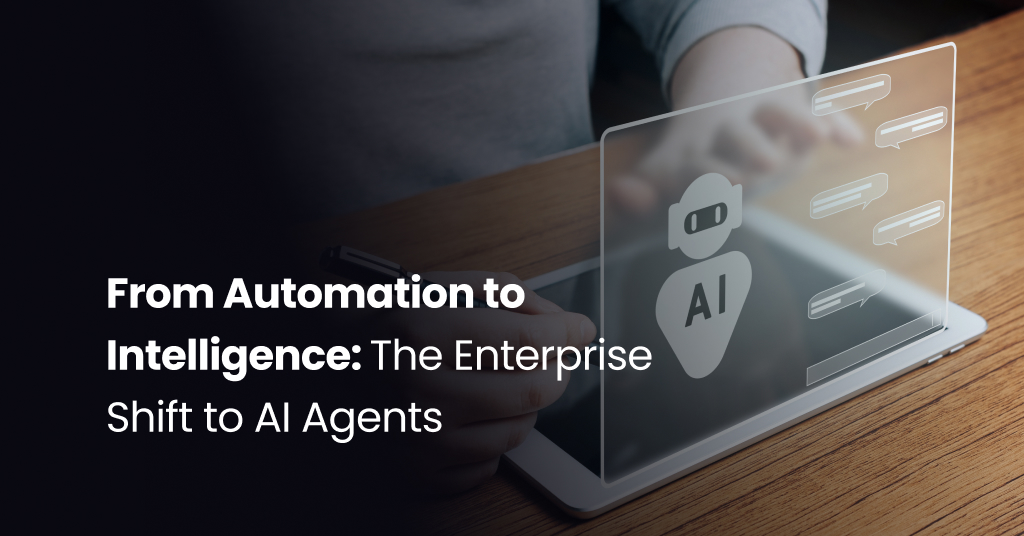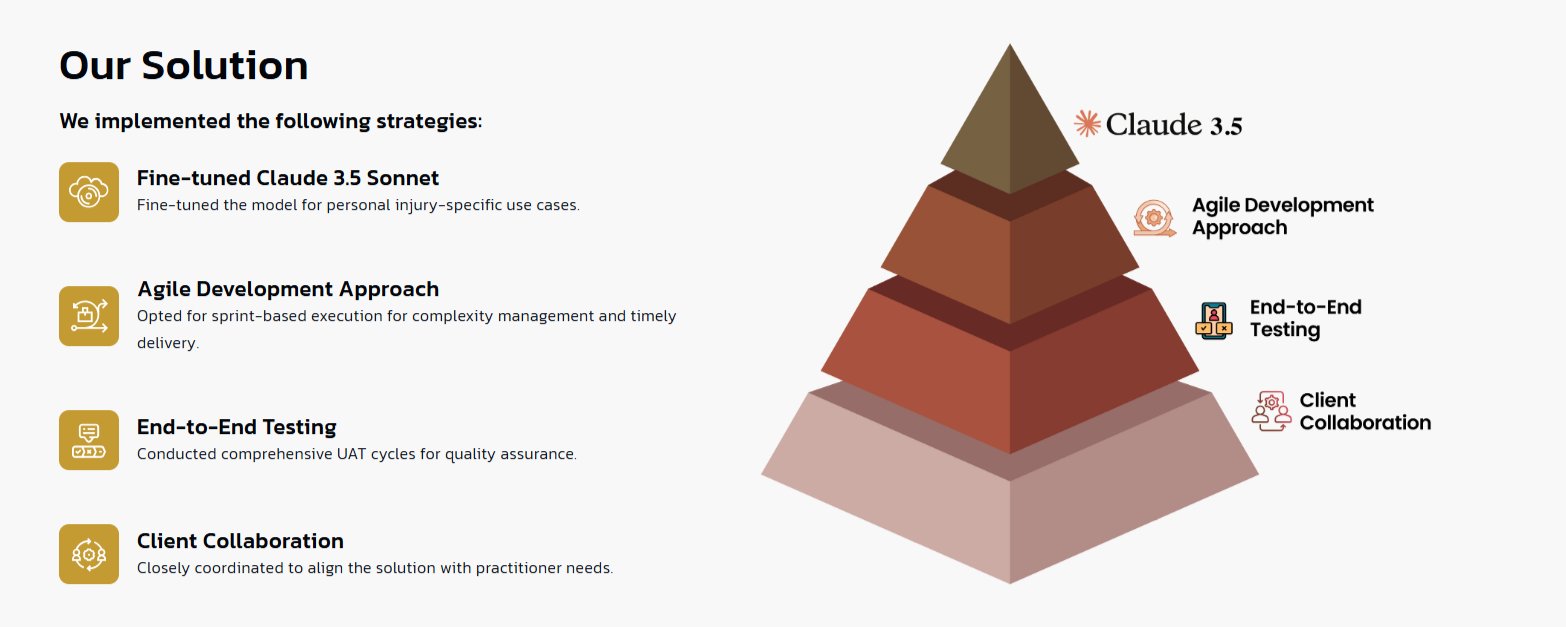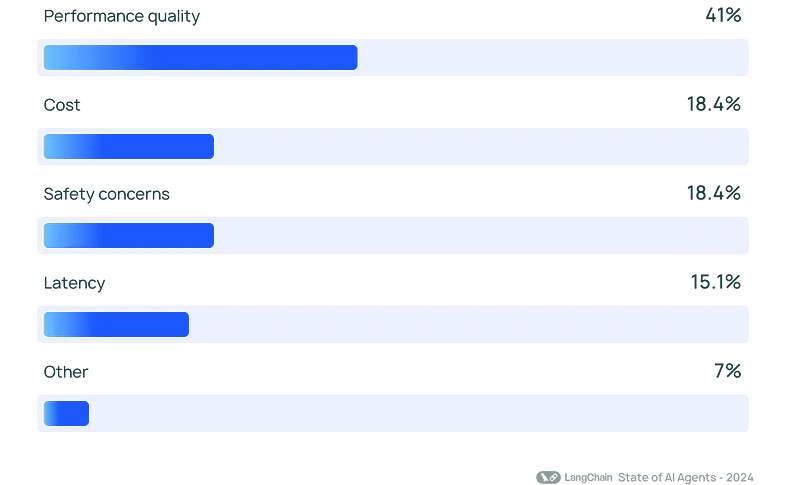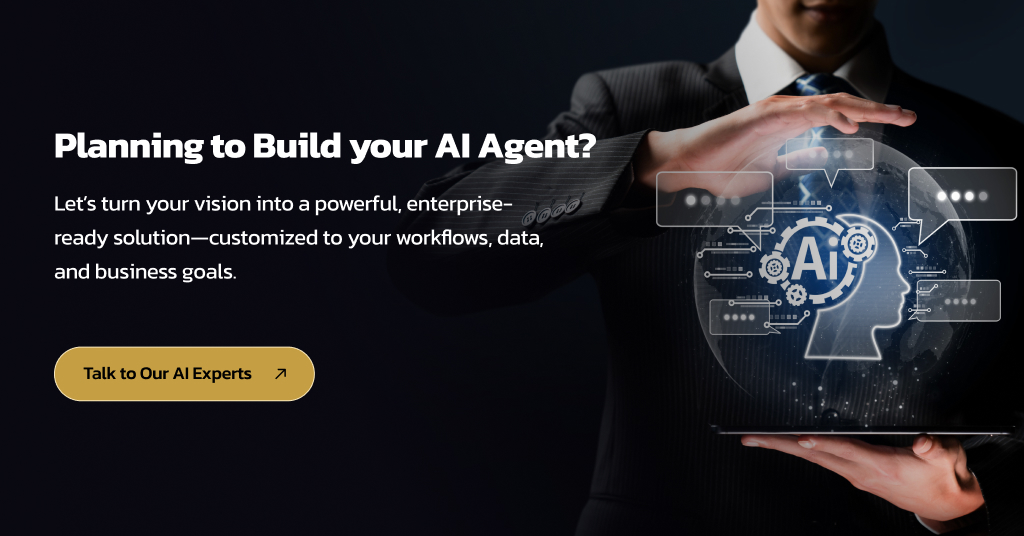
We’ve moved beyond using AI as a tool. Today, most organizations aren’t just adopting AI—they’re delegating real work to it, shifting from proof-of-concept experiments to real-world production deployments.
At the center of this shift are AI agents—systems capable of reasoning, taking action, and improving autonomously over time. Unlike traditional automation, these agents don’t just follow instructions; they make decisions, accomplish multi-step workflows, and interact with multiple systems. You must have seen some of it in action:
- Microsoft 365 Copilot is embedded across Word, Excel, and Teams—drafting documents, analyzing data, and managing meeting follow-ups.
- Salesforce’s Einstein Copilot now assists with sales workflows, opportunity summaries, and next-step recommendations.
- Amazon’s Alexa is evolving from a voice assistant into an AI agent that can make purchases and reservations, as well as execute tasks on behalf of users.
Clearly, these enterprise AI agents have redefined operations. This blog will explore the utility of AI agents in enterprises across diverse industries. We’ll touch base on where AI agents are being used, how enterprises are building them, and what challenges enterprises are facing when adopting an AI agent.
- AI Agents vs. Chatbots: What’s the Difference?
- What Powers AI Agents?
- Why are Enterprises Betting Big on AI Agents?
- How are AI Agents Transforming Enterprise Functions—Industry by Industry?
- Build vs. Buy: Should Enterprises Develop Custom AI Agents or Use Platforms?
- Challenges in Enterprise AI Agent Adoption (and How to Solve Them)
- The Future of Enterprises with AI Agents
AI Agents vs. Chatbots: What’s the Difference?
While both are associated with automation and interaction and are often used interchangeably, AI agents and chatbots are fundamentally different and serve very different purposes.
AI Agents
They are software systems capable of working autonomously and are built on large language models (LLMs) and decision frameworks (structured logic or AI models). AI agents can reason, make decisions, and interact with multiple systems to accomplish complex tasks.
Chatbots
They are software systems capable of working autonomously and are built on large language models (LLMs) and decision frameworks (structured logic or AI models). AI agents can reason, make decisions, and interact with multiple systems to accomplish complex tasks.
These are rule-based conversational tools powered by natural language processing (NLP). They handle basic interactions and respond to queries. While more flexible than script-based automation and less advanced than AI agents, most chatbots still lack contextual memory, task coordination, or decision-making abilities.
Here’s how they compare:
| Parameter | Chatbots | AI Agents |
|---|---|---|
| Core Function | Handles conversations and FAQs | Autonomous task planning and execution |
| Decision-Making Ability | Limited – predefined responses or basic NLP | High – uses LLMs and dynamic reasoning |
| Learning Capability | Limited – relies on preset flows or the core ML model used for training | Adaptive – learns from context and feedback |
| Context Awareness | Basic – short-term memory | Strong – maintains and applies contextual memory |
| System Integration | Integrates with front-end tools (e.g., live chat tools, CRM) to deliver responses | Orchestrates tasks across multiple systems and APIs, enabling end-to-end workflow automation |
| Flexibility | Medium – suitable for common, repeatable queries | High – can handle complex, multi-step workflows |
| Best Use Cases | Customer support, FAQs, lead generation | Sales enablement, IT ops automation, DevOps, and similar multi-system tasks |
What Powers AI Agents?
AI agents are made possible by a technology stack designed to support autonomous functioning. This stack includes:
1. Large Language Models (LLMs)
LLMs are used to give AI agents the ability to understand natural language, process it, and then reason before executing anything. Commonly used LLMs include OpenAI’s GPT series (ChatGPT-3 and ChatGPT-4), Anthropic’s Claude, Google’s PaLM, and Meta’s LLaMA.
2. Planning & Decision Frameworks like ReAct, Chain-of-Thought, or Plan-and-Execute
These are structured logics that enable AI agents to work through complex workflows before deciding what to do, when, and how. Goal-oriented frameworks like ReAct set a goal and break it down into subtasks. Chain-of-thought frameworks give them the ability to decide intermediate steps before taking any action. Similarly, plan-and-execution-based frameworks enable them to strategize and execute when necessary.
3. Vectorized Databases
These are special databases that store and search data using high-dimensional vectors (embeddings). Common examples include Pinecone, Weaviate, Chroma, etc. Storing and retrieving data through vectors facilitates long-term memory and contextual awareness, allowing AI agents to refer to prior interactions and learn from them.
4. Retrieval-Augmented Generation (RAG) Systems
These systems combine the retrieval of relevant data from all knowledge bases, their augmentation with the model training data, and the generation of coherent, context-aware outputs. This enables AI agents to deliver fact-based answers and reduces hallucinations.
5. Memory Management Systems
In AI agents, memory management typically relies on special architectures and models like vector databases, neural-symbolic memory models, episodic memory modules, and external memory systems. These architectures allow AI agents to store structured experiences or task-related events and combine neural network-based learning with symbolic (structured) knowledge storage.
6. Middleware: Tools and API Layers
Middleware allows AI agents to interact with external systems and perform real-world actions. They equip them with additional tools to trigger workflows, such as querying CRMs, updating databases, or posting tickets. Common examples include: MOM (message-oriented middleware, robotic middleware, APIs, and more).
Why are Enterprises Betting Big on AI Agents?
The global AI agents market is expected to grow at a CAGR of 45.8% between 2025-2030. This remarkable growth is driven by the increasing reliance of enterprises, including small-to-mid-sized organizations, on AI agents. Their interest is surging because enterprise AI agents:
Bridge Automation and Intelligence
AI agents don’t just follow pre-programmed rules; they understand context, set goals, make decisions, and execute in real-time. This turns static, manual workflows into dynamic, autonomous operations that require minimal human oversight.
Deliver Operational Efficiency at Scale–Both Immediately and Over Time
Enterprise AI solutions reduce immediate overhead by taking over time-consuming, repetitive tasks, like processing HR tickets, updating records across systems, etc. Consequently, your labor costs go down without compromising output.
In the long run, this contributes to cost efficiency at scale as enterprises optimize cross-departmental workflows with AI agent orchestration. The result? A compounded ROI, as businesses reduce operational costs and improve the efficiency of employees, IT systems, and business processes across departments.
Enable Personalized Customer and Employee Experiences
With enhanced memory and context awareness, enterprise AI agents can adapt and deliver experiences that feel seamless, human-like, and personal.
- For Customers: Use data like past orders, preferences, and unresolved issues to offer the needed assistance.
- For Sales Teams: Dynamically adapt messaging or follow-ups based on lead activity and sales pipeline stage.
- For Employees: Remember and adapt to recently used tools and systems, individual workflows, task hand-offs, approval hierarchies, IT support issues, RBACs, or permissions.
Are Built for Integration and Orchestration
Modern AI agent architectures are designed for scalable and interoperable workflows. They easily integrate with CRMs, ERPs, communication tools, and APIs, enabling end-to-end automation and orchestration across multiple tools and teams.
Future-Proof Business Processes
AI agents for enterprise applications don’t require hard-coded updates like traditional bots. While they can adapt in real-time based on context and past interactions, enterprises can also fine-tune them periodically to align with evolving policies, regulations, or business goals.
How are AI Agents Transforming Enterprise Functions—Industry by Industry?
AI agents in business are gaining momentum across all industries. Let’s explore how different industries are putting them to work.
1. Healthcare
AI implementation in enterprises within the healthcare segment primarily caters to service personalization, diagnostic workflows, and administrative processes.
Common AI Agent Use Cases in this Industry:
- Case Summarization & Analysis – Agents are used to analyze volumes of cases, enrich them with their research, and generate detailed summaries for analysis.
Want to See This in Action?
See how we fine-tuned Claude Sonnet 3.5 to analyze medico-legal cases.

- Clinical Documentation – Agents transcribe and summarize doctor-patient conversations, populating EMRs to reduce the documentation burden on physicians.
- Claims Processing – Healthcare enterprise AI agents review insurance claims, flag anomalies, and route them for approval.
PwC is known for using a Google Cloud-based AI agent to assist oncology clinics with their administrative tasks so that physicians can focus on doctor-patient time.
2. Finance and Banking
In the finance and banking industry, enterprise AI agents are helping institutions reinvent how they manage risk, engage clients, and process vast volumes of data.
Common AI Agent Use Cases in this Industry:
- Fraud Detection – AI agents continuously monitor transactional data to flag irregular spending patterns, unauthorized access attempts, and cross-account anomalies
- Loan Underwriting – To assess applicant creditworthiness using their financial histories, spending behavior, and alternative data (e.g., gig income) and then blacklisting those with defaults.
- Customer Identity Verification – AI agents validate uploaded documents, cross-check details with databases, and detect signs of forgery or identity mismatches, improving KYC/AML compliance.
JPMorgan Chase, a renowned financial service provider, has integrated AI agents into its contract intelligence platform called COiN. This AI agent analyzes volumes of financial documents (legal contracts, clauses, etc) and identifies discrepancies.
3. Retail and eCommerce
Retailers deploy AI agents for enterprise applications to personalize customer engagement, automate logistics, and enhance operational scalability.
Common AI Agent Use Cases in This Industry:
- Customer/Seller Facing Service Agents – Retail businesses use enterprise AI solutions to handle real-time support, product lookups, and return requests via chat or voice.
- Inventory Forecasting – Enterprise AI agents can also predict product demand and automate restocking at the SKU level.
- Dynamic Pricing – Businesses in this industry are also using AI agents to adjust product pricing based on competitor analysis and buying trends.
One of the most well-known examples is Amazon’s Alexa. Originally launched as a voice-based virtual assistant, Alexa is now evolving into a fully autonomous AI agent. Rather than simply responding to commands or opening apps, future versions of Alexa (Alexa+) will be able to take actions on the user’s behalf. For example, instead of directing users to a restaurant’s website, Alexa would be able to make a reservation autonomously.
4. Manufacturing
In manufacturing, AI agent-based business process automation improves process efficiency, reduces downtime, and ensures consistent product quality.
Common AI Agent Use Cases in This Industry:
- Production Planning: AI agents generate optimized production schedules based on machine availability, workforce shifts, material inputs, and delivery deadlines.
- Visual Inspection: Using computer vision-powered visual inspection, enterprise AI agents detect defects and deviations in real-time.
- Supply Chain Coordination: Agents sync procurement, inventory, and shipping workflows to reduce bottlenecks and facilitate just-in-time delivery models.
Toyota uses Google Cloud’s Vertex AI, an enterprise AI agent that allows users to build and deploy ML models for tasks like production optimization, reducing over 10,000 man-hours, and improving visibility across operations.
5. Education
AI agents in enterprise software are driving scalable, adaptive, and 24/7 learning opportunities in the EdTech sector.
Common AI Agent Use Cases in This Industry:
- Personalized Curriculum: AI agents adapt lessons to individual learning styles and performance metrics.
- Virtual TAs: Answer questions, manage submissions, and provide real-time assistance to students.
- Grading Automation: Handle bulk grading tasks, saving instructors hours of manual review.
Kira, an edtech startup founded by the famous Andrew Ng, has recently introduced an AI tutor agent in K-12 classrooms to redefine online education.
Build vs. Buy: Should Enterprises Develop Custom AI Agents or Use Platforms?
With AI agents becoming central to enterprise applications, many organizations are faced with this question: Should we build our own AI agents or use off-the-shelf AI platforms? Both approaches offer unique value and come with their downsides. The ultimate choice depends on your business goals, tech maturity, and long-term vision.
Buying Off-the-Shelf AI Agents for your Enterprise Application
| Pros | Cons |
|---|---|
| Quicker Deployment: Ready-to-use platforms (like Microsoft Copilot, Salesforce Einstein, or Zoho Zia) can be integrated with minimal setup or infrastructural investment. | Limited Customization: Most off-the-shelf solutions don’t allow deep customization, limiting alignment with your workflows. |
| Lower Initial Costs: Licensing a SaaS-based AI agent typically costs less upfront than building and training a model from scratch. | Data Lock-In & Vendor Dependence: Your enterprise data is tied to the vendor’s ecosystem., This raises concerns about data security, control, portability, and integration with other tools. |
Building Custom AI Agents In-House or via an AI Development Partner
| Pros | Cons |
|---|---|
| Tailored to your Business Logic: Custom-built enterprise AI agents can be deeply aligned with your specific processes, compliance needs, and vertical use cases | Longer Time to Market: Custom AI development requires planning, data preparation, model training, and testing, potentially delaying initial rollout. |
| Greater Control & Extensibility: You maintain full control over the AI agent’s architecture, data flows, and behavior, making it easier to scale, audit, and refine. | Upfront Investment: Building AI agents in-house or with a partner may involve higher initial costs for engineering, infrastructure, and model training. |
| Higher ROI Over Time: While initial development may be more resource-intensive, custom AI agents often offer stronger ROI over time by avoiding vendor lock-in and costly scaling. |
To save themselves from the hassle of establishing a dedicated infrastructure or assembling an in-house team of AI developers, many businesses outsource AI development services to professionals. With a development partner, you gain access to AI/ML expertise, relevant industry exposure, and established development workflows that enhance development efficiency.
Challenges in Enterprise AI Agent Adoption (and How to Solve Them)
A recent LangChain survey of over 1,300 professionals revealed the top challenges in deploying AI agents:

Let’s see how each of them prevents people from adopting AI agents in their businesses.
Performance Quality
Even today, a major AI adoption roadblock is the generation of unpredictable or irrelevant outputs. As a result, many leaders still undermine AI’s claims of trust and reliability.
Solution: To prevent AI agents from hallucinating or generating irrelevant responses, consider implementing task-specific guardrails and prompt engineering to improve response accuracy and contextual alignment.
Want to See How This Works?
Discover how we helped a US-based organic produce provider achieve 80% enhanced response accuracy through tailored prompt engineering.
Workflow of our Solution:
- Set up: Algorithms and Necessary Libraries
- Prompt Engineering for Custom Chat Flows
- Model Training Using the Engineered Prompts
- Deployed the Fine-Tuned AI agent
Cost of Development
Custom AI agent development requires upfront investment in data infrastructure, model fine-tuning, and engineering. This often poses a barrier for enterprises, especially small-to-medium-sized ones.
Solution: To optimize AI agent development costs, you can start with modular, function-specific agents and rely on open-source frameworks (e.g., LangChain, Semantic Kernel) to reduce initial costs.
Latency and Response Time
AI agents handling multi-step reasoning and external tool calls often suffer from latency issues. This can introduce significant delays, impacting user experience and workflow continuity.
Solution: Optimize AI agent architecture using caching, parallel task execution, and lightweight models for faster inference without sacrificing quality.
Safety Concerns
AI agents may produce incorrect, biased, or non-compliant responses, especially when handling sensitive or regulated data.
Solution: When developing an AI agent, ensure that all training data is reviewed and validated by domain experts to maximize relevance and accuracy. After model training, have your experts evaluate the agent’s outputs to identify and correct any irrelevant or inconsistent responses. Additionally, a framework for continuous monitoring and periodic auditing must be established for consistent safety.
The Future of Enterprises with AI Agents
AI’s proliferation started from basic rule-based automation and chatbots to more sophisticated process automation solutions and AI agents. And its roles are continuously evolving, even today. They are moving beyond supporting roles into leading ones—decision-making and cross-functional orchestration in complex enterprise ecosystems. In the coming years, you can expect to see them embedded deeper into enterprise operations—from procurement and legal review to spotless frontline customer experiences.
If you’re planning to implement AI agents for your business, now is the time to act. Our AI development services can help you build tailored, production-ready solutions that deliver real business impact. Contact us at info@technoscore.com.

